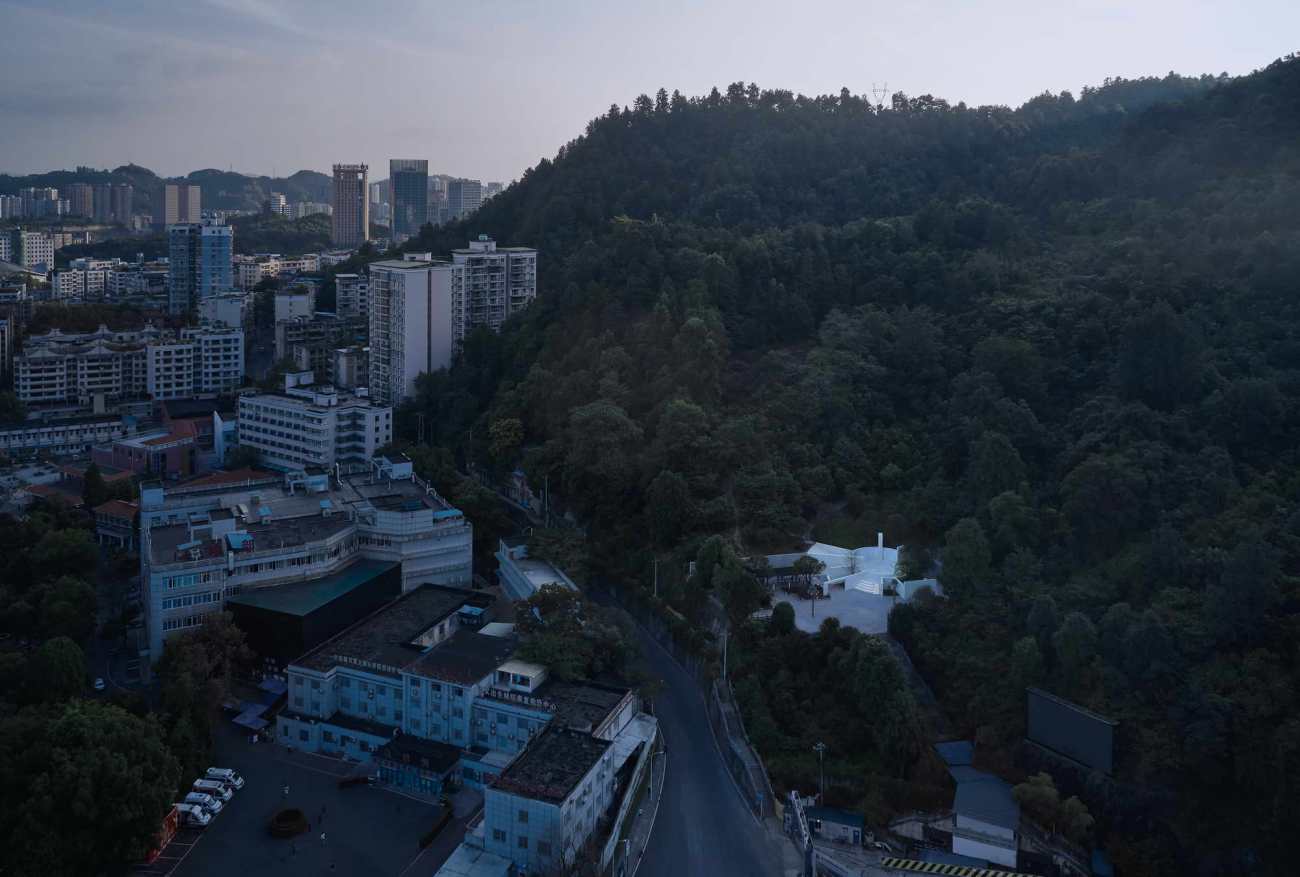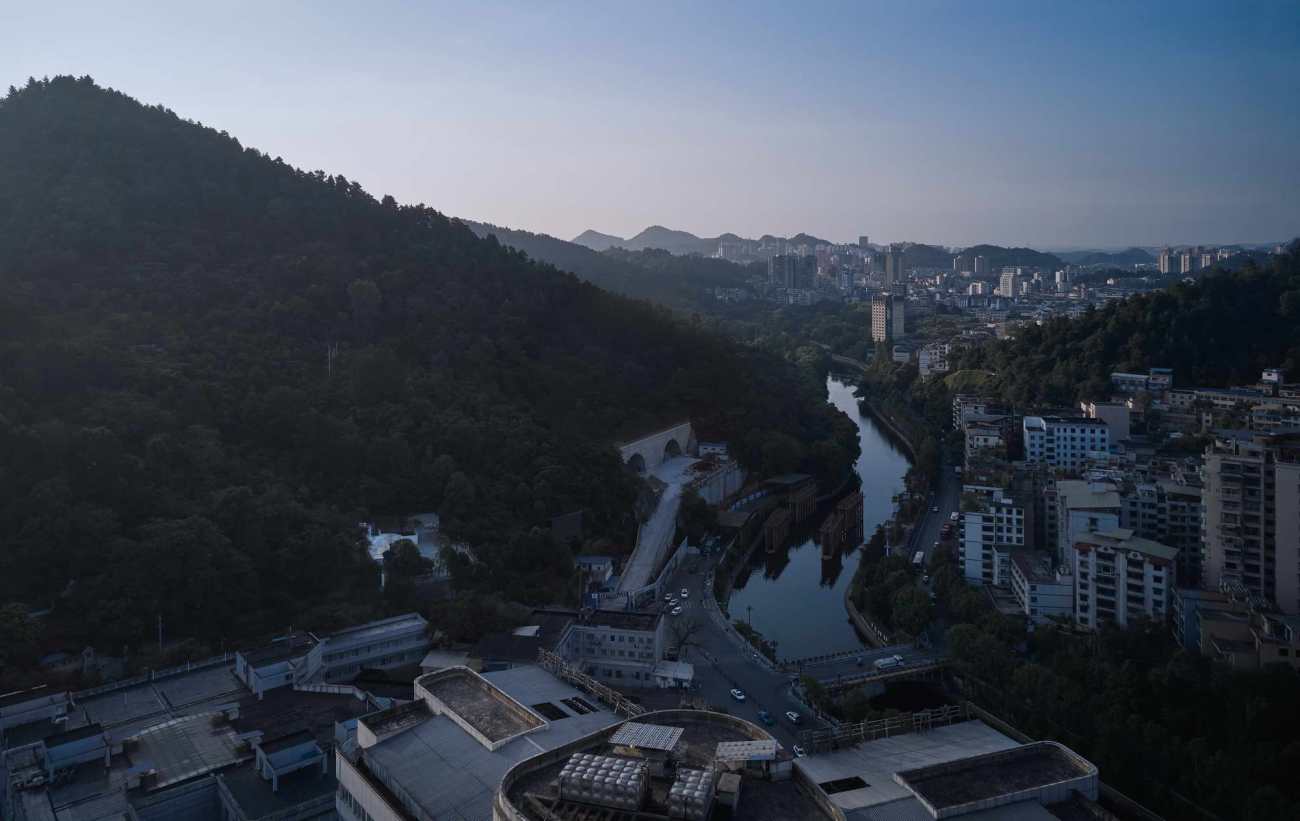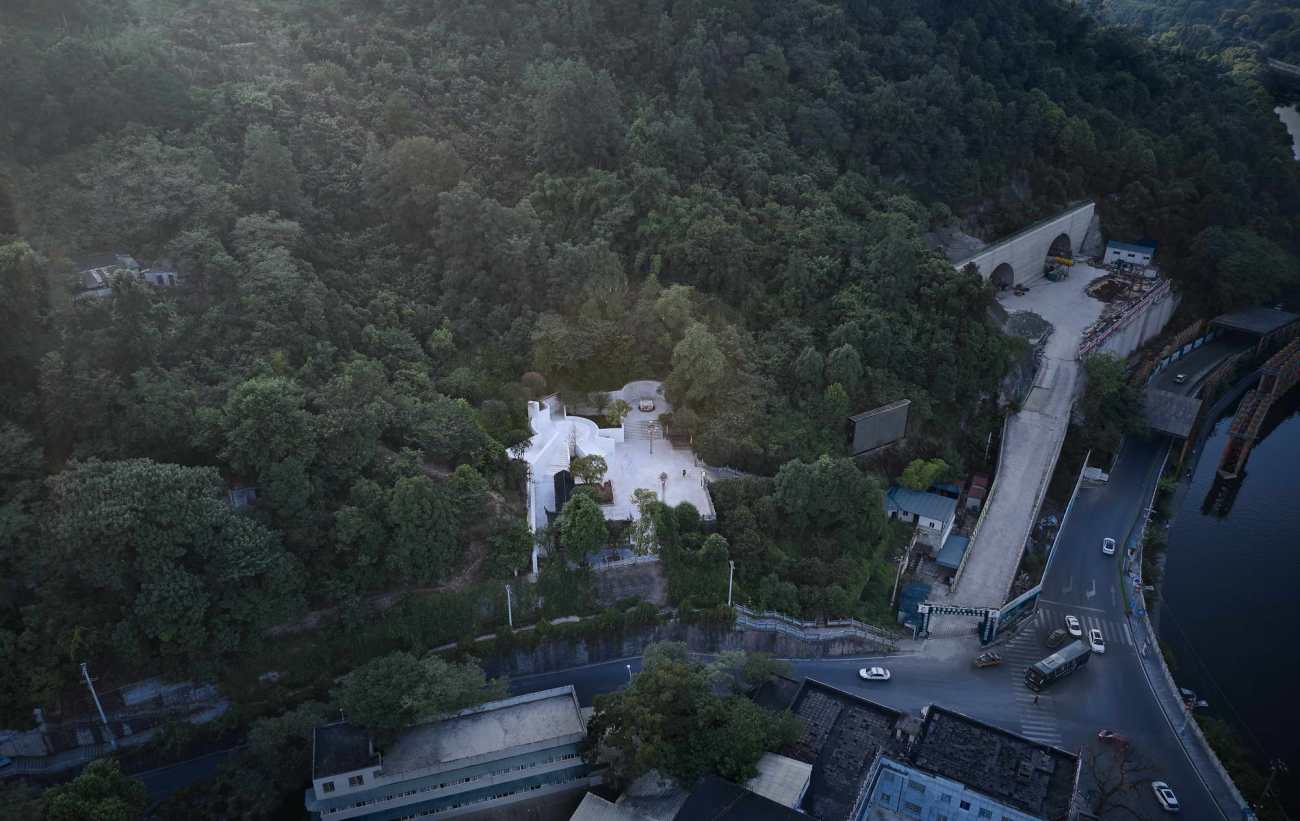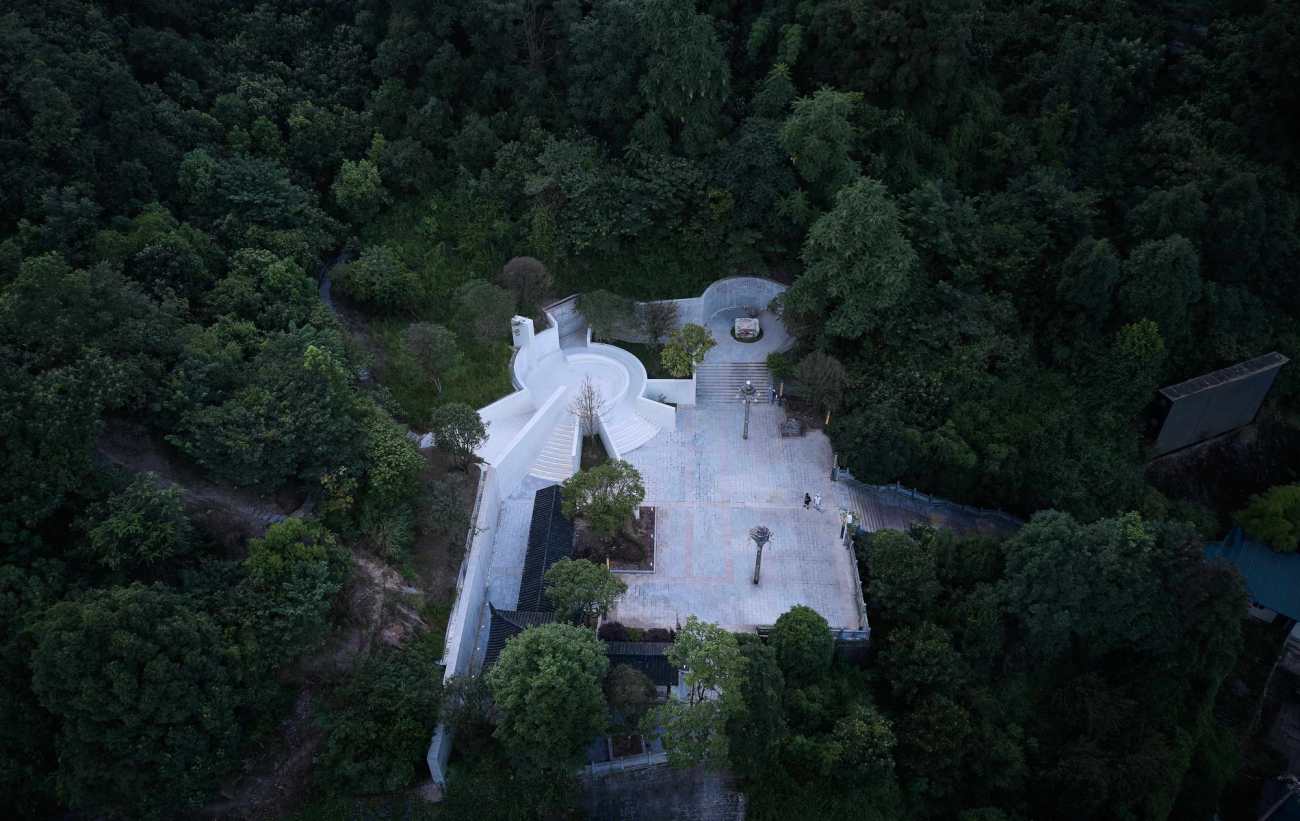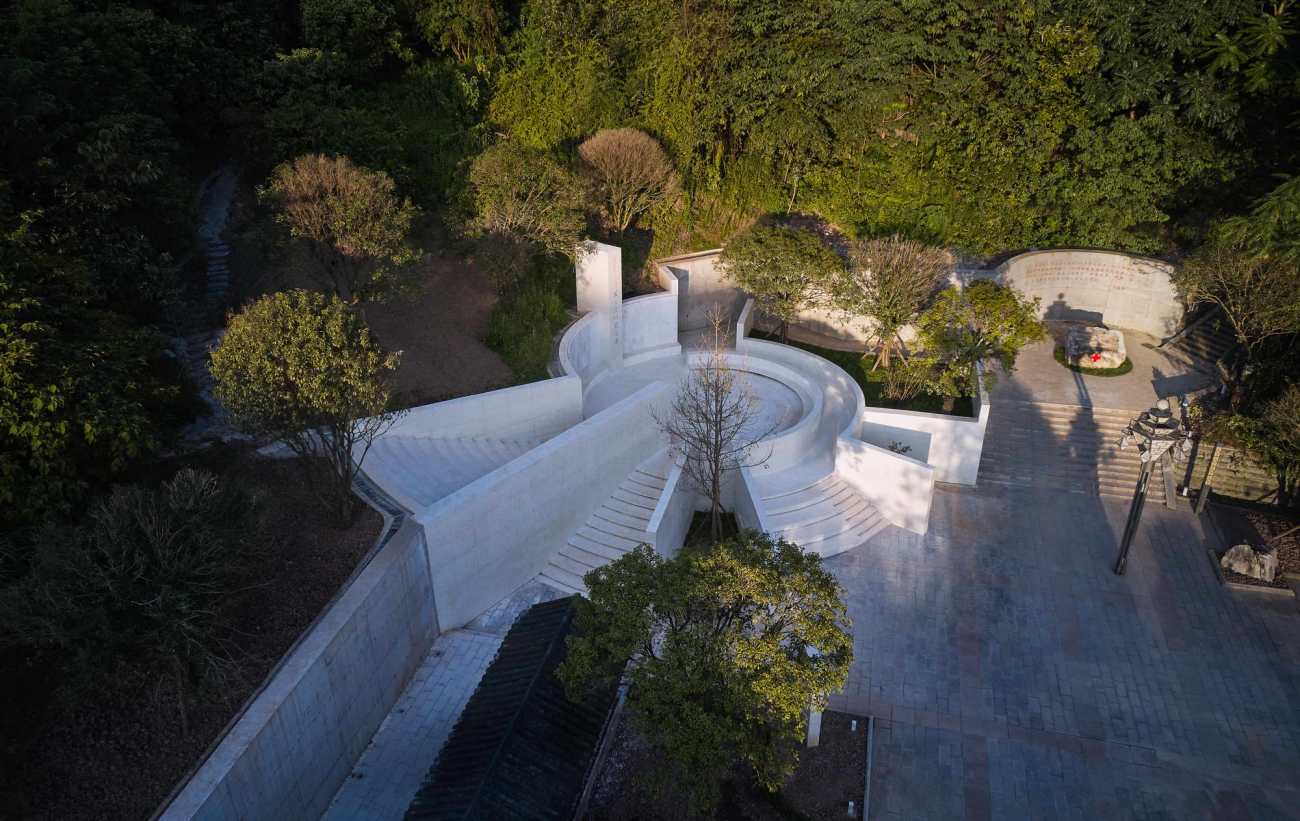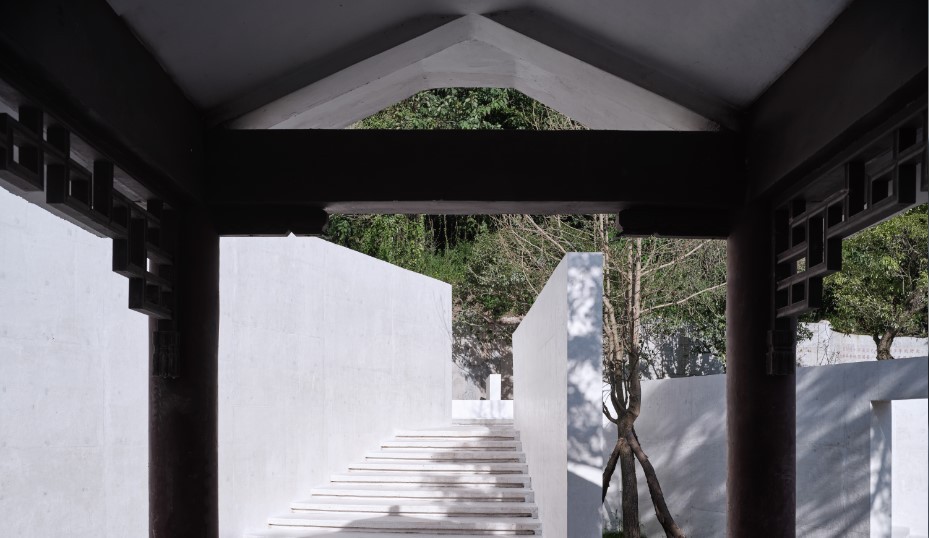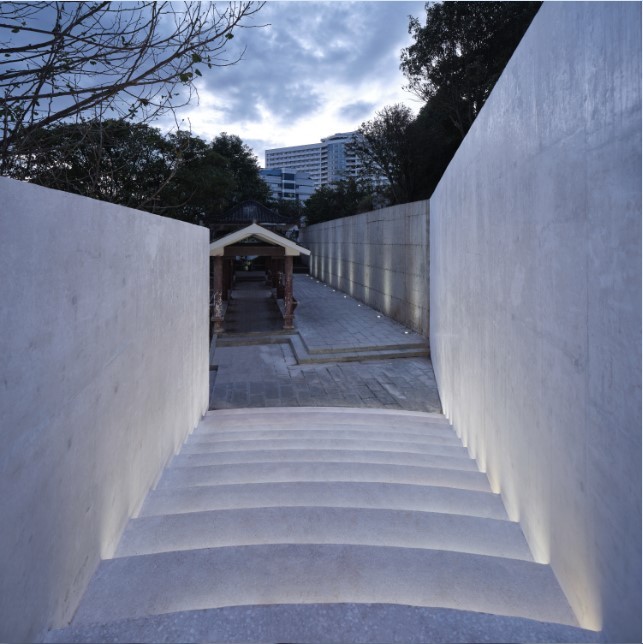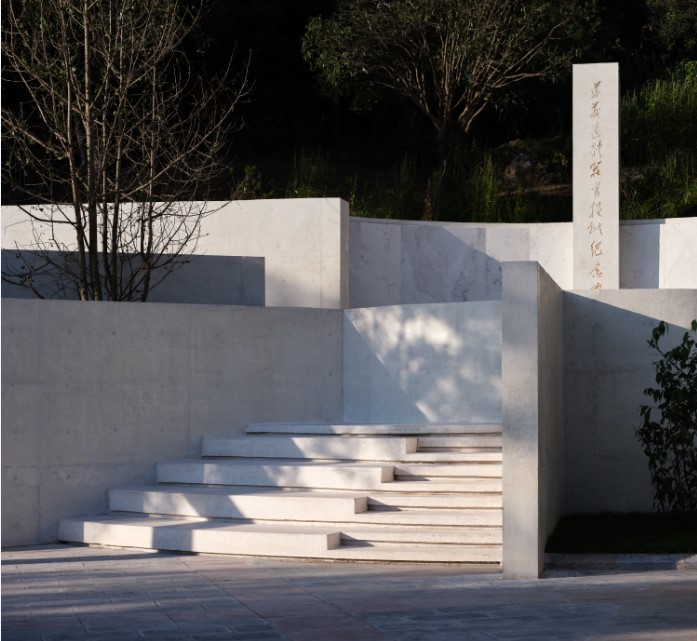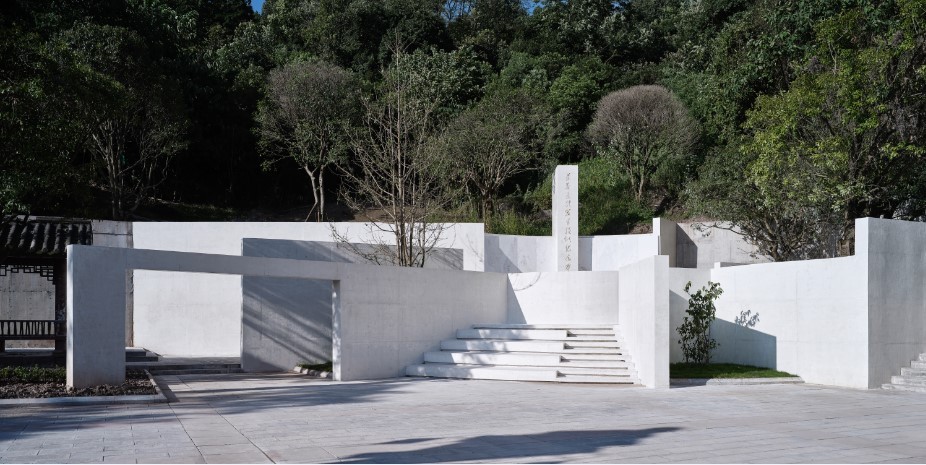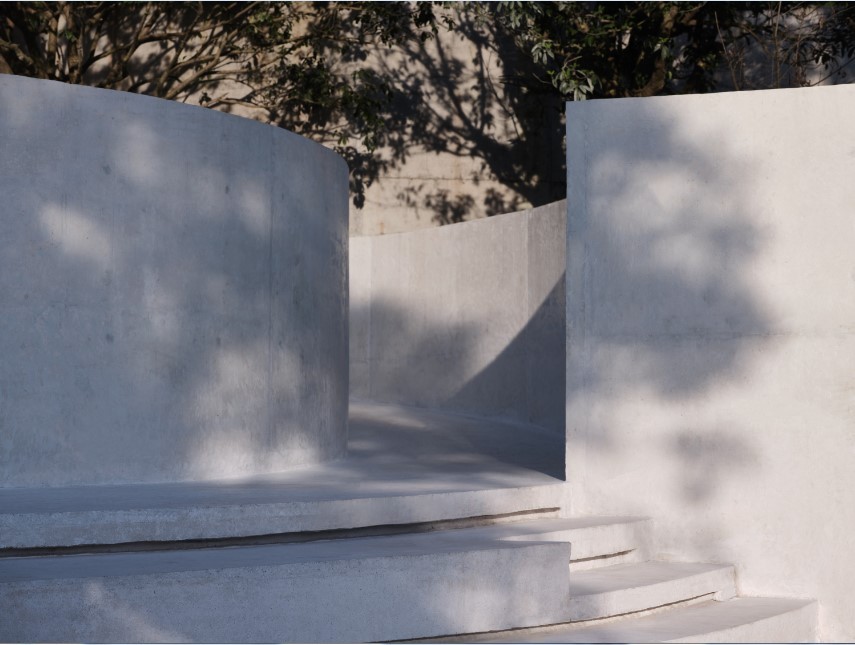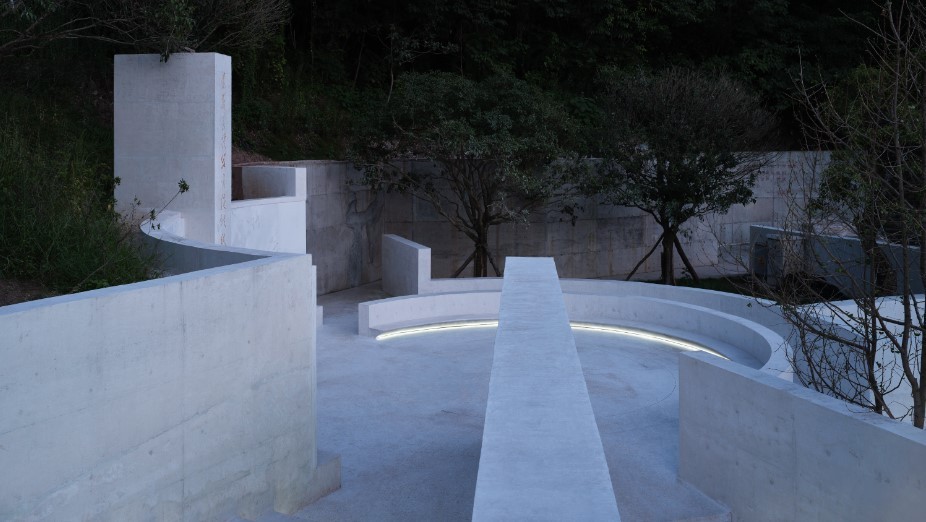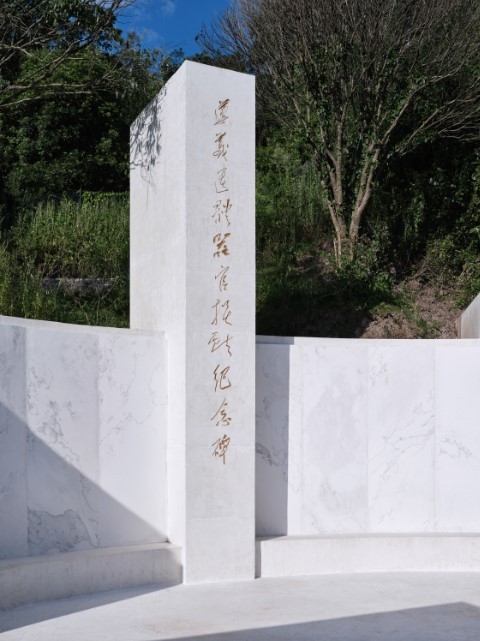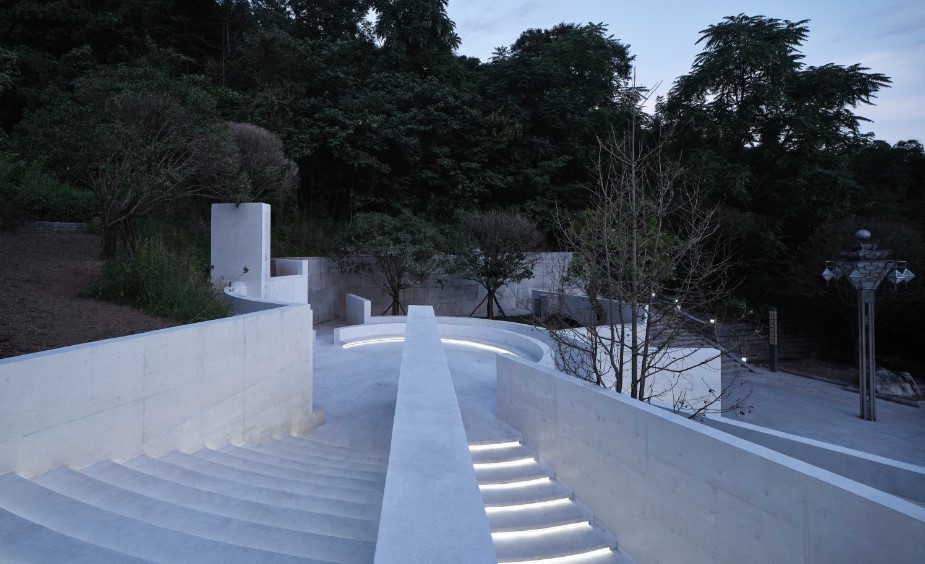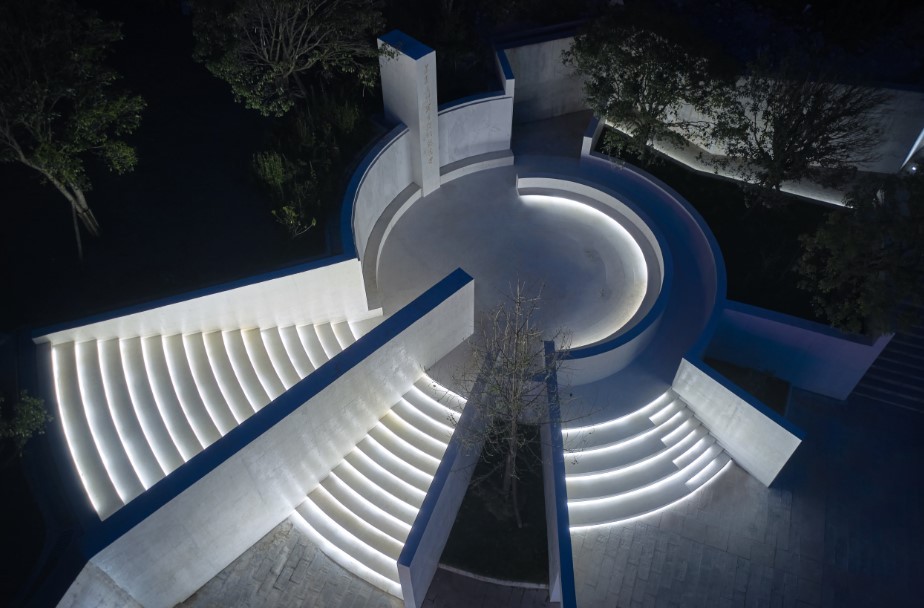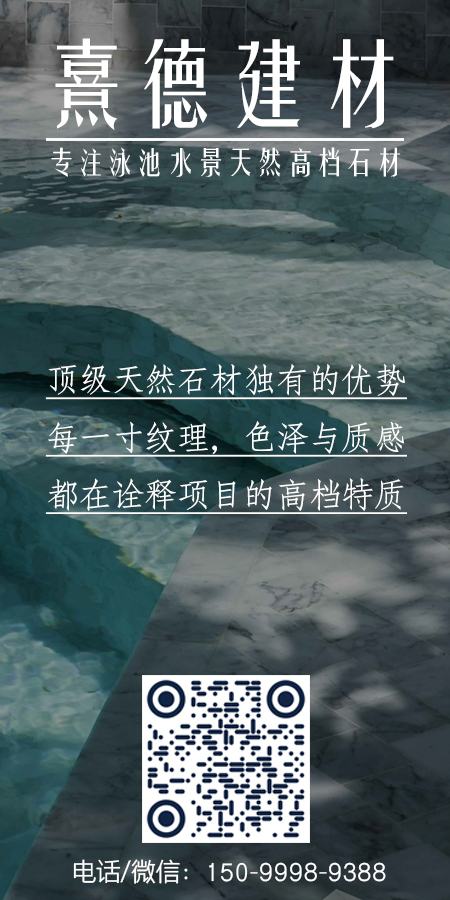遵义遗体器官捐献纪念碑旨在为广大群众、捐献者家属以及青少年等不同社会群体提供一处静谧的公共场所,以悼念和缅怀人体器官(人体、眼角膜组织等)捐献者们,表达对他们无私奉献的大爱精神的敬仰。建筑师受业主委托,介入到此项与生命有关的半公益性设计。
Zunyi Memorial to the Body and Organ Donors aims to provide a quiet public place for the general public, the families of donors and young people as well as other social groups to mourn and remember the donors of human organs (human body, corneal tissue, etc.) for their selfless spirit, and pay respect for their loving dedication. The architect was commissioned by the owner to intervene in this semi-public welfare design related to life.
项目选址在凤凰山半山腰西南角的一处市民休闲健身广场。基地毗邻凤凰山隧道入口,靠近山脚,与市内交通衔接便利,市民可从山脚沿台阶步行直达参观。项目尊重原有场地及其自然环境肌理,仅拆除部分健身器材,并充分保留了广场的休息凉亭等设施及其原有的基础布局,以最大化适应性介入周边环境;同时使得新建筑尽可能呈现质朴和低调的姿态,与当地的自然风貌以及当代社会人文精神保持谦逊而开放的互动。
The project site is located in a public leisure and fitness plaza at the southwest corner of the mountainside of Phoenix Mountain. The base is adjacent to the entrance of the Phoenix Mountain Tunnel, close to the foot of the mountain, and is easily connected to the city's transportation. The public can walk directly from the foot of the mountain along the steps to visit. The project respects the original site and its natural environment texture, only removes part of the fitness equipment, and fully retains the square’s rest pavilions and other facilities and its original basic layout to maximize adaptability to the surrounding environment; at the same time, the new building is made as much as possible presenting a simple and low-key posture, maintaining a humble and open interaction with the local natural scene and the humanistic spirit of contemporary society.
纪念碑被设想成一处向市民开放的公共空间:开放的、可通过的、日常性的,但又具有独特空间与建造品质的一处静谧之所。
The monument is conceived as a public space open to citizens: a quiet place that is open, passable, and daily, but with unique space and construction quality.
设计理念
Design Concept
建筑赞美生命:那些在生命终点前志愿捐出身体或器官的人,一定拥有一个乐观灿烂的生命。设计基于“光/Englightment”的理念来展开:生命的光亮,或强或弱,但四散开去照亮一隅,美好而沉静!这是纪念碑的最初原型。
Architecture praises life: Those who volunteer their bodies or organs before the end of their lives must have an optimistic and brilliant life. The design is based on the concept of "Light/Englightenment": the light of life, strong or weak, but spread out to illuminate a corner, beautiful and calm! This is the original prototype of the monument.
诗性:遵义遗体器官捐献纪念碑的设计是一个开放的命题,功能的限定是模糊的,也恰好给到精神的与诗性的考量第一位次的机会。“建筑物本身从来不是诗性的”(彼得•卒姆托),而建筑师正是物质与精神的联结者,是物质的精神赋予者。
Poetic: The design of Zunyi's remains and organ donation monument is an open proposition, and the limitation of function is vague. It also happens to give the first chance to consider spiritual and poetic considerations. "The building itself is never poetic" (Peter Zumthor), and the architect is the link between the material and the spirit, the spiritual giver of the material.
空:“空”是建筑师面对纪念性诉求的一贯策略,对于“物”的中心性的抵触,使建筑师一开始就以场所的思考代替物的标志,从而使得纪念的过程成为一种静谧的、沉思的空间体验过程。“空”构建了一个光的中心,片墙辐射开来,巧妙嵌入到山脚高低零落的场地,这是设计的赋形和启示的时刻,设计激活了这一平凡乏味的场地,亦谓之“启蒙/Enlightenment”。
Empty: "Empty" is a consistent strategy for architects to face monumental demands. The resistance to the centrality of "things" makes architects use place thinking instead of signs of objects from the beginning, making the process of commemoration a kind of quiet and contemplative space experience process. "Empty" constructs a center of light, the wall radiates, and is cleverly embedded in the high and low site at the foot of the mountain. This is a moment of shaping and inspiration of the design. The design activates this ordinary and boring site, which is also called "Enlightenment”.
场所系统与物质构建
Site system and material construction
纪念碑成为一个微型的日常场所系统,全部由白色混凝土浇注而成,如同磬石,与山脚自然的林木、地势嵌为一体。建筑的材料是纯一的、厚重的,衔接呼应,如同生长出大地。
The monument becomes a miniature daily place system, all made of white concrete pouring, like a chime stone, embedded in the natural forest and terrain at the foot of the mountain. The materials of the building are pure and heavy, connecting and echoing, as if growing out of the earth.
沿放射线形成不同的台地与阶梯,提供端坐静思之地,沿台级而上的路线形成折转忽见的参观之径,纪念碑、纪念墙与坐凳围合成核心的圆形场地,提供可供五六十人使用的小型纪念活动场所。
Different terraces and steps are formed along the radiation line, providing a place to sit and meditate, and the route up the platform forms a path of turning and seeing. Monuments, memorial walls and benches surround a circular site with a core. A small commemorative venue for fifty or sixty people.
花台之上,回首可见城市繁华灯火,在沉思与反观之间感受生命之美好;汉白玉的石板用以雕刻每一位捐赠者的姓名,每一批名字的雕刻成为一种纪念的仪式。
Above the flower stand, looking back, you can see the bustling lights of the city, and you can feel the beauty of life between contemplation and reflection; the white marble stone slab is used to carve the name of each donor, and the carving of each batch of names becomes a commemoration ceremony.
场地中间种植高大银杏,可想见秋季白色混凝土台地黄叶缤纷,生命可逝去,但都有绚烂的一瞬!
Tall ginkgo is planted in the middle of the site. You can imagine the yellow leaves on the white concrete platform in autumn. Life can pass away, but there is a glorious moment!
项目名称:遵义遗体器官捐献纪念碑
业主:遵义市红十字会
项目地点:贵州省遵义市
占地面积:178平方米
建筑高度:5.5米
建筑设计:同济大学建筑设计研究院(集团)有限公司/麟和建筑工作室
主创建筑师:李麟学
设计团队:周凯锋、刘旸、单云翔、侯苗苗、温良涵、刘聪聪、马骁
摄影:章鱼见筑
Project Name: Zunyi Memorial to the Body and Organ Donors
Client: Red Cross Society of Zunyi City
Project location: Zunyi City, Guizhou Province
Area: 178 square meters
Height: 5.5 meters
Architectural design: TJAD Atelier L+
Principal architect: Li Linxue
Design team: Zhou Kaifeng, Liu Yang, Shan Yunxiang, Hou Miaomiao, Wen Lianghan, Liu Congcong, Ma Xiao
Photography: Zhang Yu Jian Zhu
更新日期:2021-08-09 18:34:08
非常感谢 麟和建筑工作室 带来的精彩项目, 查阅更多Appreciations towards TJAD Atelier L+ for sharing wonderful work on hhlloo. Click to see more works!

